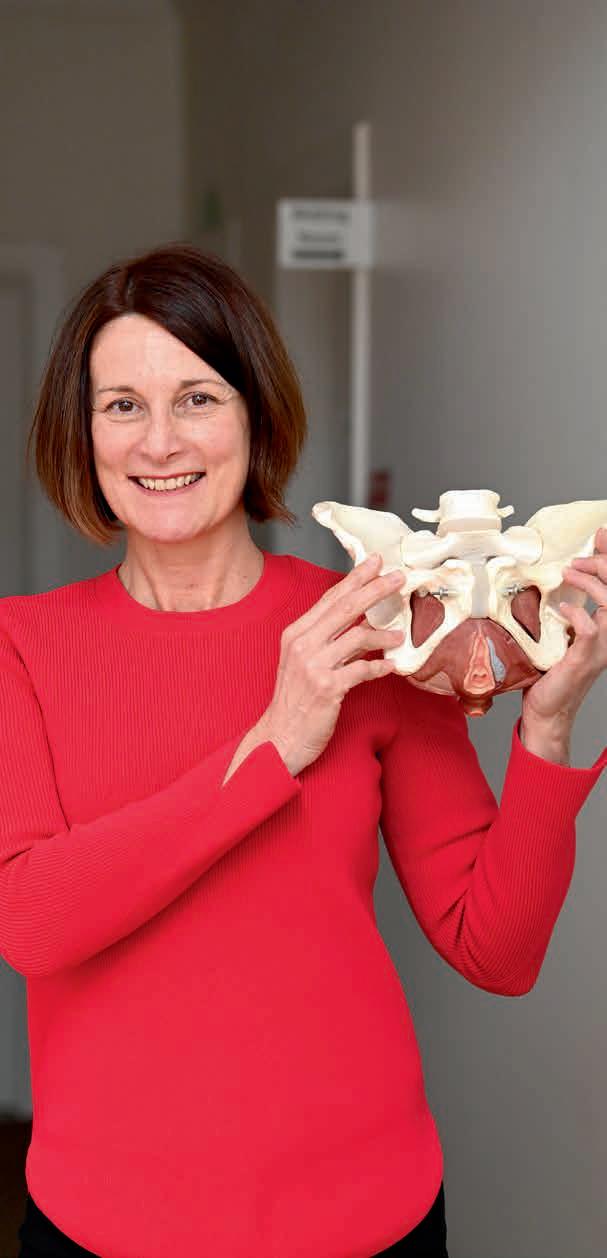
2 minute read
Fit for life
ABOUT ONE IN THREE WOMEN ARE AFFECTED BY INCONTINENCE AFTER HAVING A BABY. BUT IT CAN BE AVOIDED WITH THE RIGHT EXERCISES DURING PREGNANCY.
STORY: ANNA MCGUINNESS. PHOTOGRAPHY: MEGAN FISHER
INCONTINENCE is one of the potential issues Shepparton physiotherapist Tina Pesavento aims to help women with through her pregnancy education classes, run in conjunction with Fix Movement Performance.
Tina has been specialising in pelvic health for women, men and children for more than 20 years.
“Encouraging exercise in pregnancy is recommended, as long as their healthcare provider says there are no medical risks, which is very rare,” Tina said.
“It keeps you fitter for pregnancy but also prepares you to endure labour better and recover more quickly.
“Regular exercise also encourages the brain to release its own pain-relieving hormone.”
Issues after birth can include back and pelvic pain, abdominal muscle separation, incontinence — bladder and bowel, urgency or frequency — and pelvic organ prolapse, which affects one in two first-time mums.
Tina encourages women to have a postnatal assessment to identify any issues that need rehabilitating and to ensure a safe return to exercise.
“The importance of postnatal recovery is for the future — to prevent prolapse, incontinence, and allow them to be able to continue to exercise and decrease co-morbidities in the future,” she said.
“You have women in their 50s who probably have got really bad prolapse or incontinence and don’t exercise.
“So you address those issues early and teach good habits that helps people continue good healthy habits in the future.”
It’s not just important for women who have a vaginal birth either. Tina said women who have a caesarean may still be affected by the hormones released, the baby weighing on the pelvic floor, abdominal muscle separation and overactive muscles.
“We talk about back care because of the changing body shape and the hormones released can result in pelvic girdle pain,” Tina said.
“Stronger ladies are also better postnatally lifting prams into cars and lifting toddlers.
“But the other thing is to teach people what can occur after birth in regards to the pelvic floor, but not to be fearful.
“Sometimes they only find out they’ve had this nasty tear after the baby, but if you’re informed about the effects we can address these and rehabilitate.”
The one-hour classes also address general birth skills — positioning, breathing and mindfulness — strengthening and general mobility, and correctly contracting and relaxing the pelvic floor.
The classes are held every six weeks at Fix Movement Performance and are suggested for women after 16 weeks of pregnancy.










